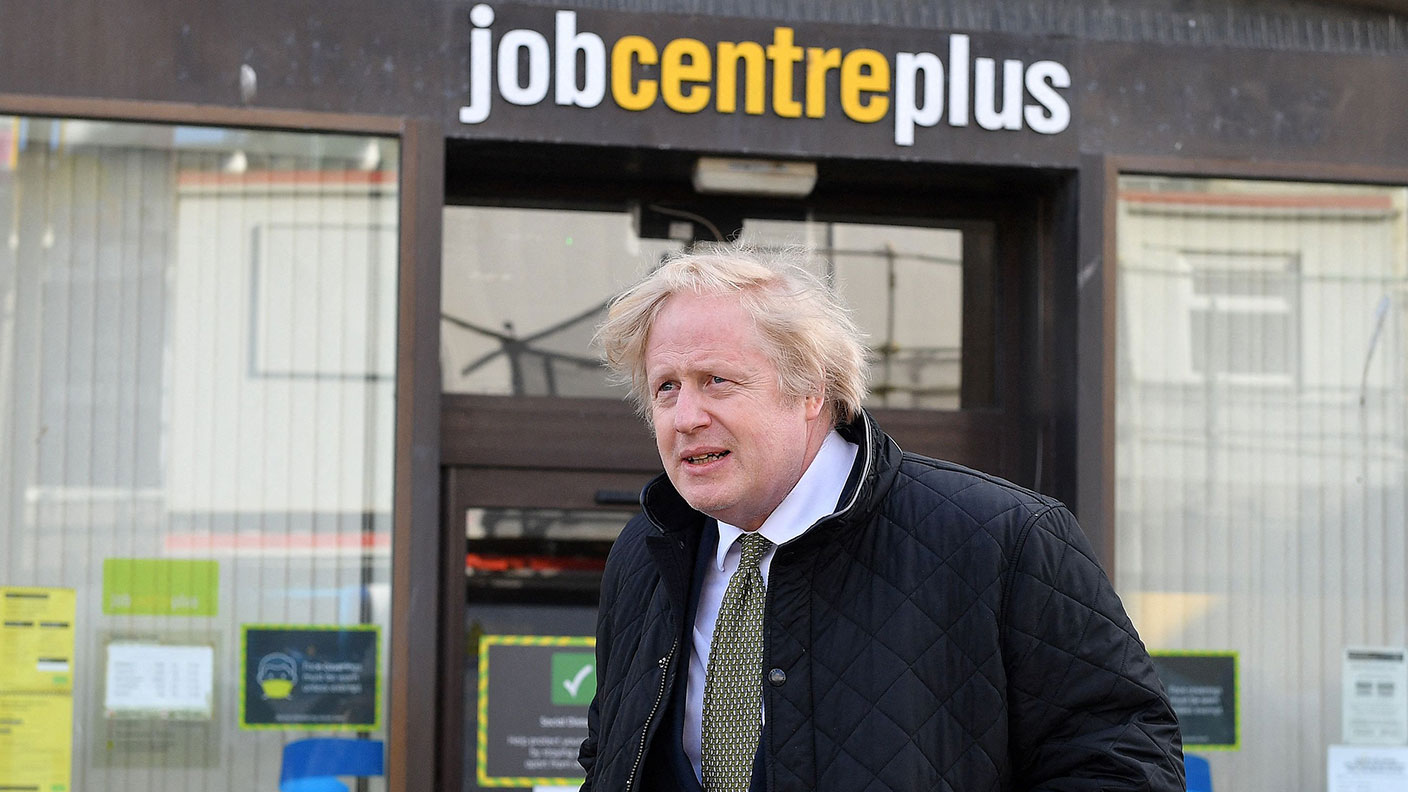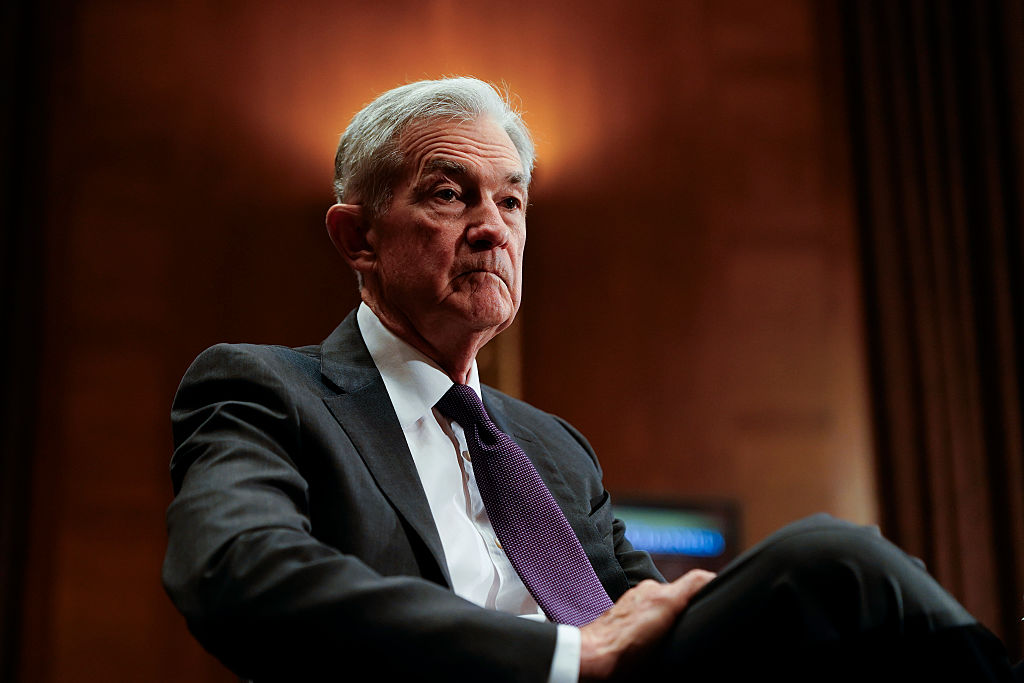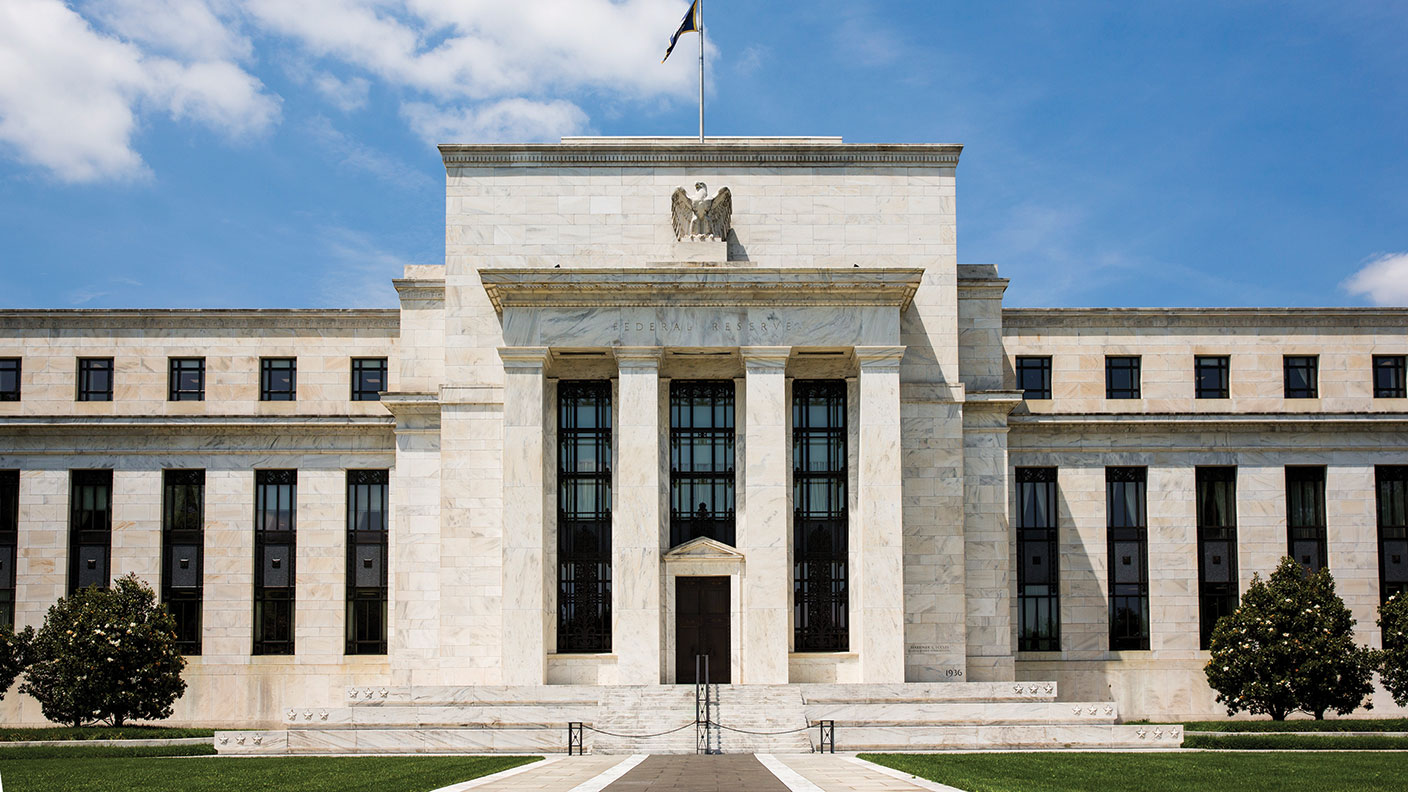Wages are soaring and job vacancies are at record levels – is inflation next?
Wages in the UK are rising fast as the economy rebounds from the Covid recession. Will that drive inflation? John Stepek looks at what’s driving wages higher, and how long it might last.


Get the latest financial news, insights and expert analysis from our award-winning MoneyWeek team, to help you understand what really matters when it comes to your finances.
You are now subscribed
Your newsletter sign-up was successful
Want to add more newsletters?

Twice daily
MoneyWeek
Get the latest financial news, insights and expert analysis from our award-winning MoneyWeek team, to help you understand what really matters when it comes to your finances.

Four times a week
Look After My Bills
Sign up to our free money-saving newsletter, filled with the latest news and expert advice to help you find the best tips and deals for managing your bills. Start saving today!
When it comes to inflation, I’ve spent a fair bit of time focusing on the US in Money Morning.
There’s a reason for that: when it comes to monetary policy, global markets care most about what the Federal Reserve, the US central bank, does. And of course, the Fed only cares about inflation and employment in the US, not anywhere else.
But alongside our investments, lots of us have our savings and our livelihoods in the UK – so it’s important to keep an eye on what’s going on over here too. And the latest employment data suggests that inflation is very much a live issue on our shores too.
MoneyWeek
Subscribe to MoneyWeek today and get your first six magazine issues absolutely FREE

Sign up to Money Morning
Don't miss the latest investment and personal finances news, market analysis, plus money-saving tips with our free twice-daily newsletter
Don't miss the latest investment and personal finances news, market analysis, plus money-saving tips with our free twice-daily newsletter
This has been a very unusual recession
Recessions and unemployment go hand in hand. The economy slows down; companies stop making as much money or fear that they’re in for a rougher time. They stop hiring. Then they start firing.
People lose their jobs and they can’t find other ones. People get scared about paying the mortgage. Even people with jobs stop spending as much money because they’re worried about losing their jobs. That means the economy slows down further, and you get a downward spiral.
It’s never as simple as this, of course. The sentiment side is particularly suspect, but it’ll do as a model for this morning’s purposes.
The good news is that even though the reaction to the coronavirus pandemic triggered the deepest recession most of us have ever seen, it was very short.
Government aid meant that many more people than usual kept their jobs, while those who didn’t – with some notable and painful exceptions, yes, but we’re talking the aggregate here – were mostly supported far better than during more “normal” times. Meanwhile, savings actually went up.
And the good news is that, although we’re still not quite back to where we were jobs-wise before the pandemic, it does look as though we’ll get there much more quickly than most of us would have expected 15 months ago.
The latest UK employment figures show that all of the numbers are going in the right direction. Unemployment dropped to 4.7% in the quarter through June, which was slightly below the 4.8% expected (in the last pre-pandemic quarter, unemployment was 3.9%).
Redundancies have returned to pre-pandemic levels, which were themselves extremely low relative to history. Weekly hours worked are still below February 2020 levels, but are climbing fast.
Meanwhile, even though the furlough scheme, which has insulated the UK jobs market, is winding down now, the big surge in unemployment fearfully anticipated by some earlier this year now doesn’t seem very likely – a blip higher perhaps, but not one that’ll last.
Why? About 80% of the jobs lost during the pandemic have now been recovered. Yet there are still plenty of jobs out there. The number of job vacancies is now sitting at around a million, a record high, and well above pre-pandemic levels.
Meanwhile, wage growth was also higher than expected. For the quarter to the end of June, average weekly earnings were up by 8.8% compared to the same period last year. That’s a huge increase – the biggest since 2001, when comparable records began. It’s also an acceleration from the 7.4% seen in the quarter to May.
This is the figure we tend to focus on when it comes to inflationary pressure. So how significant is it?
Wages are rising fast – but perhaps not as fast as you think
Before we start gawping at that wage growth figure (and go marching to the boss’s office to demand our own 8.8%), it does need to be taken with a pretty big pinch of salt. Indeed, Ruth Gregory at Capital Economics reckons that underlying pay growth is more like 2.0%.
Why? Two things affect the figure: compositional effects and base effects.
The base effect is quite straightforward. If last year was a normal year, then an 8.8% jump in wages would be astonishing and also very clear evidence of accelerating inflation.
But last year was anything but normal. Lots of people were on furlough, or on reduced hours, or both. As a result, average weekly earnings went down. In other words, at least part of the big improvement this year is because last year was so bad.
We’re starting from a “low base”. So we can’t draw the same conclusions that we would if this had happened in a more “normal” period.
Compositional effects add another complication. The average weekly wages figure just adds up employees across all sectors then averages out their pay into one figure. So you’ve got people from highly-paid sectors plus people from less well-paid sectors, and it all adds up to one number.
Usually that’s fine, because there’s not a huge difference in overall hiring and firing patterns, so the figures are comparable over time.
But the pandemic hit certain sectors harder than others. Workers in sectors with a larger proportion of lower-paid jobs (particularly in the hospitality and leisure sectors) were more likely to lose those jobs.
If lower paid people lose their jobs, then average wages will go up, even if no one else gets a pay rise, because you’ve removed a load of the numbers that would otherwise pull down the average.
Jonathan Atow, a statistician at the Office for National Statistics, has a good analogy: if you’re looking at the average height of people in a room, and the smallest person leaves, then the average height goes up, even though no one has actually grown any taller.
As a result of all this, the average wages figure is hard to compare to “normal” times, because hiring patterns are unusual right now. That said, while composition effects had the impact of driving average earnings up during the pandemic, they should reduce over time, and the effect of base effects is much higher.
The thing is, while underlying pay growth of 2% doesn’t sound that dramatic, if you look at those other pressures – soaring demand for labour (as represented by job vacancies) combined with individual workers being in a rather better position to be choosy than they have been for perhaps decades – it still strikes me as perfectly possible that we will see pressure for wage growth rising, rather than weakening, as the recovery continues.
Long story short, none of this proves definitively that inflation is here to stay. But it certainly doesn’t look convincing for the “temporary” side either.
This is an issue we’ve been spending a lot of time on in MoneyWeek magazine and we’ll keep doing so. Subscribe now if you don’t already – you’ll get your first six issues free.
Until tomorrow,
John Stepek
Executive editor, MoneyWeek
Get the latest financial news, insights and expert analysis from our award-winning MoneyWeek team, to help you understand what really matters when it comes to your finances.

-
 How should a good Catholic invest? Like the Vatican’s new stock index, it seems
How should a good Catholic invest? Like the Vatican’s new stock index, it seemsThe Vatican Bank has launched its first-ever stock index, championing companies that align with “Catholic principles”. But how well would it perform?
-
 The most single-friendly areas to buy a property
The most single-friendly areas to buy a propertyThere can be a single premium when it comes to getting on the property ladder but Zoopla has identified parts of the UK that remain affordable if you aren’t coupled-up
-
 How a dovish Federal Reserve could affect you
How a dovish Federal Reserve could affect youTrump’s pick for the US Federal Reserve is not so much of a yes-man as his rival, but interest rates will still come down quickly, says Cris Sholto Heaton
-
 New Federal Reserve chair Kevin Warsh has his work cut out
New Federal Reserve chair Kevin Warsh has his work cut outOpinion Kevin Warsh must make it clear that he, not Trump, is in charge at the Fed. If he doesn't, the US dollar and Treasury bills sell-off will start all over again
-
 'Investors should brace for Trump’s great inflation'
'Investors should brace for Trump’s great inflation'Opinion Donald Trump's actions against Federal Reserve chair Jerome Powell will likely stoke rising prices. Investors should prepare for the worst, says Matthew Lynn
-
 'Governments are launching an assault on the independence of central banks'
'Governments are launching an assault on the independence of central banks'Opinion Say goodbye to the era of central bank orthodoxy and hello to the new era of central bank dependency, says Jeremy McKeown
-
 Will Donald Trump sack Jerome Powell, the Federal Reserve chief?
Will Donald Trump sack Jerome Powell, the Federal Reserve chief?It seems clear that Trump would like to sack Jerome Powell if he could only find a constitutional cause. Why, and what would it mean for financial markets?
-
 Do we need central banks, or is it time to privatise money?
Do we need central banks, or is it time to privatise money?Analysis Free banking is one alternative to central banks, but would switching to a radical new system be worth the risk?
-
 Will turmoil in the Middle East trigger inflation?
Will turmoil in the Middle East trigger inflation?The risk of an escalating Middle East crisis continues to rise. Markets appear to be dismissing the prospect. Here's how investors can protect themselves.
-
 Federal Reserve cuts US interest rates for the first time in more than four years
Federal Reserve cuts US interest rates for the first time in more than four yearsPolicymakers at the US central bank also suggested rates would be cut further before the year is out